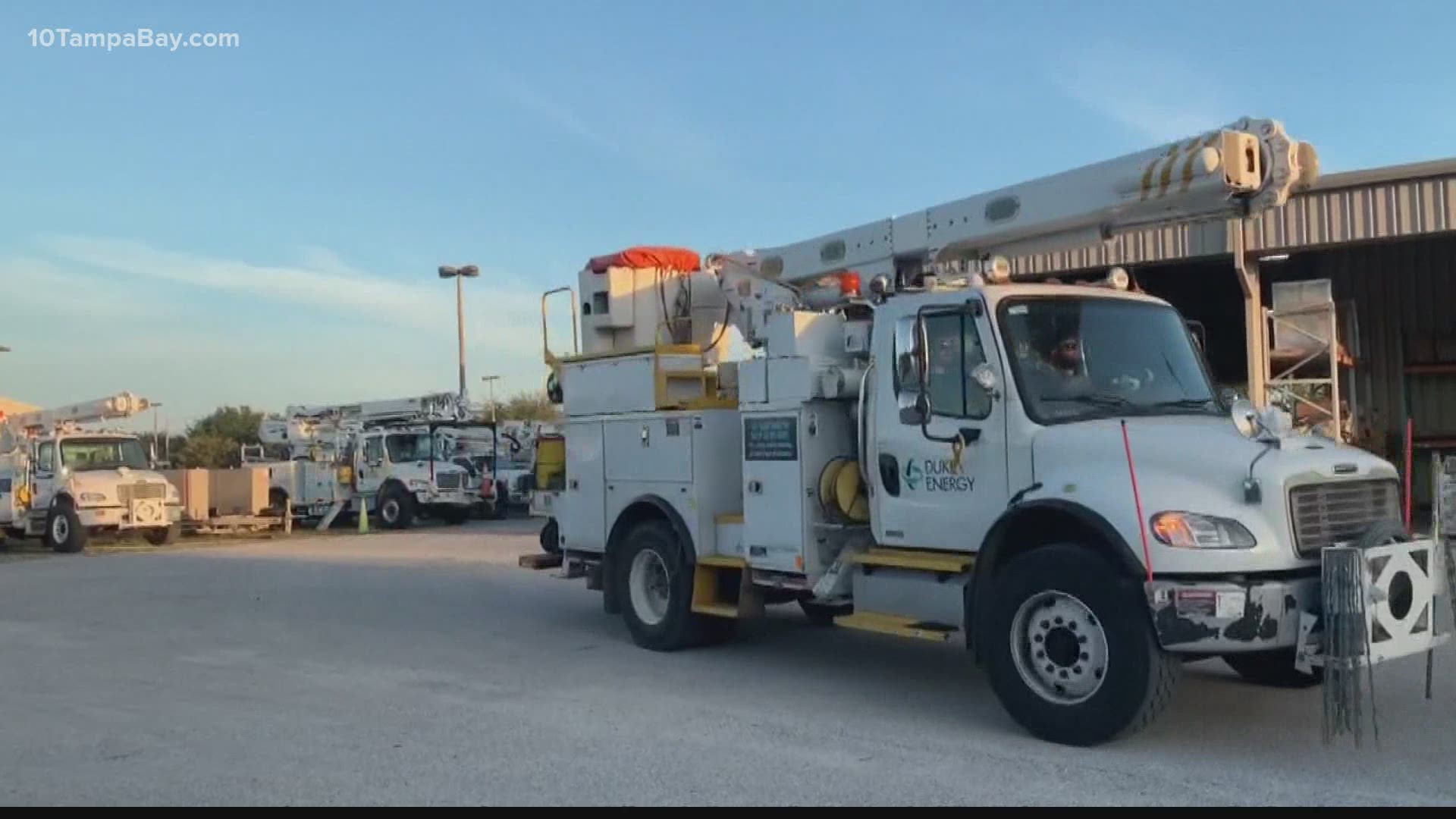TAMPA, Fla — You’ve heard of porch pirates and online scams this time of year, but what about utility scams?
Some crooks are trying to take advantage of you by threatening to shut off your power.
The coronavirus pandemic has made all aspects of life harder in 2020. And, now some crooks are looking to use COVID-19 to take advantage of you.
“We’ve seen a rise in scams since the pandemic, and we’ve seen a shift in the scams. We’ve also seen old school scams with a new twist,” explained Bryan Oglesby with the BBB.
One of those scams...crooks claiming they’re with your utility company.
“They claim that you haven’t paid your electric bill and to go to your local superstore and buy a gift card to submit payment for that bill,” said Oglesby.
It happened to Joanne Wray. She explained what happened to her to our 10 Investigates team.
“The phone rang and this man said he was with Duke Energy and he said, ‘I’m sorry to tell you Mrs. Wray, but because you didn’t pay your last bill, there’s someone on their way right now to your house and they’re going to shut off your power’ and I said what?”
Afraid of having her power turned off, she gave the caller her credit card number. Moments later she realized she had been scammed.
“I said you should be ashamed of yourself; and I hung up and I immediately called my credit card company,” said Joanne.
Since the beginning of 2020, about 2,400 TECO customers in Florida say they've heard from scammers, and about 100 of them fell for the scams -- losing a total of roughly $58,000. In the same timeframe, about 4,540 Duke Energy Florida customers said they were targeted by scammers -- with 179 falling victim and paying the scammers a total of about $95,000.
The BBB says it has teamed up with Duke Energy, TECO and other utility companies to get the word out.
“They’re going to use high-pressure tactics and they’re going to use technology to make you really believe they are the utility company. They may even have similar on-hold messaging,” said Oglesby.
Joanne was able to cancel her credit card. Now, she wants to help prevent this from happening to anyone else.
“I thought well gosh, if it will help somebody else not to get into that trap, let’s just do it and let everybody know what’s going on out there,” said Joanne.
Individual consumers aren’t the only victims of this. The BBB has also gotten complaints from businesses that have been targeted by these scams.
So, what are some red flags to look out for?
- The BBB says one red flag is being asked to use a gift card as payment.
- It says these crooks use high-pressure tactics to convince you to pay them.
- Before you give any information out, the BBB says to look up the number of the utility company on your bill or go to the company's website and call them directly.
- Duke Energy: https://www.duke-energy.com/customer-service
- Tampa Electric: https://www.tampaelectric.com/contact/
- TECO Peoples Gas: https://www.peoplesgas.com/contact/
More guidance directly from the BBB
Common scam tactics
- Utility disconnection threats: Customers may receive threats to turn off electric or gas service – usually in less than an hour – if a large payment is not made.
- Immediate payment requests: Customers are asked to quickly purchase a prepaid debit card and provide the card information, which grants the scammer instant access to personal funds. Some scammers may also request a money wire or a payment app.
- Calls that appear to be from your utility: Scammers may rig caller ID to make it look like the call is from a service provider. They have even duplicated the utility’s upfront Interactive Voice Response system, so when customers call back phone numbers provided by the scammer, it sounds like a legitimate phone number.
How to protect yourself
- We encourage customers who suspect a scam to hang up and call their utility company immediately at the phone number listed on their bill or website, followed by a call to the police and report the incident to BBB Scam Tracker at bbb.org/scamtracker to help warn others. Never dial the phone number the scammers provide.
- Do not pay over the phone if immediate payment is demanded to avoid disconnection. Customers with delinquent accounts receive an advance disconnection notification from utilities – never a single notification an hour before disconnection.
- Utilities never ask or require a customer with a delinquent account to purchase a prepaid debit card to avoid disconnection. Customers can make payments online, by phone, automatic bank draft or by mail.
How to identify utility workers conducting work on or near your property
- If customers question whether the person is a legitimate utility representative, contact the utility to verify their identity and reason for the visit.
- Always ask for identification. Employees of Duke Energy, Tampa Electric and Peoples Gas carry company-issued identification.
- In some instances, representatives from private companies may be working in your area on behalf of your utility as a contractor. If they do not have an official identification card, ask for their name and the reason for their visit, and then contact the utility to verify the information.
- Customers should call the police immediately if they believe the person is an imposter.

